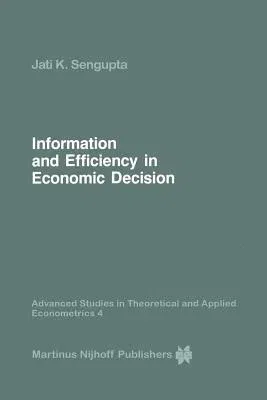Jati SenGupta
(Author)Information and Efficiency in Economic Decision (Softcover Reprint of the Original 1st 1985)Paperback - Softcover Reprint of the Original 1st 1985, 3 November 2011

Qty
1
Turbo
Ships in 2 - 3 days
In Stock
Free Delivery
Cash on Delivery
15 Days
Free Returns
Secure Checkout
Part of Series
Advanced Studies in Theoretical and Applied Econometrics
Print Length
482 pages
Language
English
Publisher
Springer
Date Published
3 Nov 2011
ISBN-10
9401087377
ISBN-13
9789401087377
Description
Product Details
Author:
Book Edition:
Softcover Reprint of the Original 1st 1985
Book Format:
Paperback
Country of Origin:
NL
Date Published:
3 November 2011
Dimensions:
23.39 x
15.6 x
2.54 cm
ISBN-10:
9401087377
ISBN-13:
9789401087377
Language:
English
Location:
Dordrecht
Pages:
482
Publisher:
Weight:
689.46 gm

